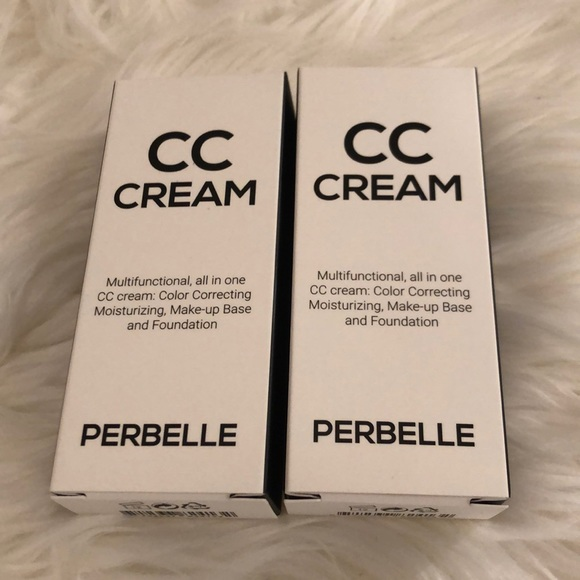The Role of Whistleblowers in Pharmaceutical Fraud Detection
Key Takeaways:
- Whistleblowers are pivotal in exposing fraudulent activities within the pharmaceutical industry.
- The legal landscape offers protections and incentives for whistleblowers to report unethical practices.
- Effective legal counsel is paramount in navigating the complexities of pharmaceutical fraud cases.
- Technological advancements and evolving policies are shaping the future of whistleblowing in healthcare.
Introduction to Pharmaceutical Fraud
In the high-stakes world of pharmaceuticals, where the development and distribution of medications are intricately linked to public health and safety, fraud can have dire consequences. Unethical practices such as kickback schemes, price-fixing, and tampering with clinical trials to falsify efficacy data represent the industry’s dark underbelly. This multi-billion dollar shadow looms over honest medical progression. To combat these nefarious acts, specialized legal experts, such as a pharmaceutical fraud lawyer, provide crucial assistance in bringing such issues to light through the legal process, working tirelessly to restore integrity and justice within the industry.
Transgressions within pharmaceutical operations defraud governmental health programs and private insurers and, more importantly, jeopardize patient trust and safety. The cost of pharmaceutical fraud extends beyond financial losses to impact a broader scope involving the marginalization of patient care, dampening innovation, and erosion of healthcare credibility. Therefore, existing checks and balances, primarily in regulatory compliance and vigilant oversight, play a fundamental role in curbing these illegal activities and protecting society’s welfare.
Whistleblowers: Defenders of Public Interest
At the heart of the anti-fraud crusade within the pharmaceutical realm are whistleblowers. These courageous individuals often step forward from the confines of the industry, wielding insider information about illicit activities and risking their careers to unveil truths that corporations would otherwise shroud in secrecy. Whistleblowers are invaluable in the battle against corruption by providing transparency, assisting regulatory entities, and bringing justice where it’s due.
Legal shields forged by legislature grant whistleblowers certain immunities, reducing the personal cost of their moral decisions. The Dodd-Frank Wall Street Reform and Consumer Protection Act, Sarbanes-Oxley Act, and the False Above Claims Act are integral instruments implemented to encourage these individuals. They provide legal redress and monetary compensation, mitigating the potential backlash that might deter the pursuit of justice. Empowered by these legislations, whistleblowers can navigate through daunting corporate and legal labyrinths with greater confidence, assured that the justice system has their back.
The Process of Reporting Pharma Fraud
The intricate journey of reporting pharmaceutical fraud starts with the crucial decision to expose wrongdoing. Potential whistleblowers must tread carefully, often seeking confidential legal counsel to understand the implications of their actions. Legal practitioners guide these brave individuals through the initial steps, including documenting evidence of fraud, maintaining confidentiality, and understanding the potential risks and benefits of coming forward.
After obtaining counsel and deciding to proceed, whistleblowers will typically work with their attorneys to compile a disclosure statement and file a complaint under the appropriate legislation. This process often includes coordination with federal and sometimes state authorities, ensuring that meticulously gathered evidence is placed into trustworthy hands. Ensuring a secure and confidential line of communication throughout this phase is essential in protecting the whistleblower and maintaining the integrity of the information provided.
Challenges Faced by Whistleblowers
Though protected by law, whistleblowers often confront formidable obstacles ranging from societal backlash to career-threatening moves by those they expose. The personal ramifications can be profound, with potential blocklisting within the industry, social isolation, and long, stressful legal battles. Acknowledging these hurdles is not to dissuade but to highlight the grit and determination required to challenge the status quo — a testament to the whistleblower’s courage.
Notwithstanding the difficulties, assistance is available from networks that specialize in supporting individuals who dare to expose the truth. Within these support systems are advocacy groups, mental health professionals, and legal teams dedicated to aiding whistleblowers through their journey. These resources work collectively to minimize negative impacts and help protect the whistleblower’s right to everyday life during and after the case’s conclusion.
Essential Laws and Regulations Surrounding Whistleblowing
The stronghold that supports whistleblower initiatives in the United States is a robust legal framework, with the False Claims Act (FCA) at its center. This legislation allows individuals to sue fraudulent parties on the government’s behalf, including pharmaceutical companies that have defrauded federal programs. Qui tam provisions within the FCA enable whistleblowers to potentially receive a share of any government recovery, thereby incentivizing the reporting of misconduct.
On an international level, initiatives and conventions such as the United Nations Convention against Corruption reinforce global efforts to safeguard whistleblowers. These legal bulwarks harmonize anti-corruption strategies across borders, further strengthening the resolve of individuals willing to expose fraud irrespective of their geographic location. Leveraging these laws, whistleblowers worldwide can embark on their journey with greater assurance of protection and recognition.
Notable Whistleblower Cases in the Pharmaceutical Industry
The pharmaceutical industry has witnessed landmark whistleblower cases highlighting the gravity of fraud within the sector and reinforcing the effectiveness of legal avenues in pursuing these cases. High-profile legal battles have led to colossal recoveries for public funds and, more importantly, have set precedents that continuously evolve the landscape of corporate responsibility and legal accountability.
Through the testimony and tenacity of whistleblowers, hidden malpractices in marketing schemes, pricing collusion, and regulatory compliance failures have been brought into the public eye, compelling companies to reform and governments to refine regulatory oversight. These cases underscore the indispensable role of the whistleblower as a catalyst for positive change within an industry fraught with ethical challenges.
The Role of Lawyers in Whistleblower Cases
Navigating the intricacies of pharmaceutical fraud requires seasoned legal professionals specializing in whistleblower representation. From case inception to resolution, experienced attorneys play a pivotal role in shaping the course of the whistleblower’s journey. Legal advisors ensure whistleblowers are well-informed, prepare strategic litigation plans, negotiate with government agencies, and advocate tirelessly on their behalf.
Quality legal representation extends beyond the courtroom. Lawyers provide moral support, negotiate settlements, and interact with the media when necessary, providing a multifaceted support system. The relationship between the whistleblower and their legal counsel is paramount, forming the backbone of a solid and compelling case against pharmaceutical fraud.
Improving Systems to Encourage Whistleblowing
Creating a culture where whistleblowing is protected and encouraged requires systemic transformation. Corporations can foster transparency by embedding ethical standards into corporate governance structures, providing secure and anonymous reporting channels, and deploying regular training emphasizing the importance of unearthing fraud. Governmental and non-governmental organizations can aid this pursuit by amplifying whistleblower successes and endorsing policies that facilitate safe disclosure.
Such advancements in organizational culture and policy-making bestow individuals’ confidence to step forward and contribute to a preemptive environment where the elevated likelihood of exposure deters potential fraudsters. Implementing such structural changes ensures a steadfast commitment toward cultivating an ethos that champions corporate integrity above profits.
Future of Whistleblowing in Pharma: Trends and Predictions
With the ever-increasing integration of technology in all facets of life, including healthcare and legal systems, the domain of whistleblowing stands on the cusp of significant evolution. Tools like data analytics and machine learning could offer upcoming methods for detecting fraud schemes, providing whistleblowers with more sophisticated means to substantiate their claims. Additionally, as society becomes more digital, the expectation for transparent and ethical corporate behavior becomes increasingly pronounced, potentially resulting in swifter and more substantive responses to fraud claims.
Emerging legal frameworks and international coalitions seek to standardize whistleblowing protections and strengthen collaborative efforts in uncovering and prosecuting transnational corporate misdeeds. Future whistleblowers may find a more fertile ground for their revelations, backed by an informed public and a responsive legal framework worldwide.
Conclusion: The Importance of Whistleblowers in Upholding Industry Integrity
In conclusion, whistleblowers are indispensable guardians of public trust and the moral compass of the pharmaceutical industry. Their sacrifices and the challenges they face in bringing unlawful practices to light play a crucial role in maintaining the integrity of the healthcare system. As ethical vigilance becomes more embedded within corporate cultures and with a continued evolution in legal protections, the importance of whistleblowing will only be further underscored.
Insights regarding this critical topic can be enhanced by additional reading, such as the article The Rise of Whistleblowers in Combating Pharmaceutical Fraud from BMJ, which delves into the significant impact of whistleblowers on industry practices. Alongside this, the World Health Organization’s initiative to protect healthcare whistleblowers around the globe further emphasizes the critical nature of these individuals in ensuring public health and the ethical distribution of healthcare resources.
Stay in touch to get more updates & news on Discover Tribune!





